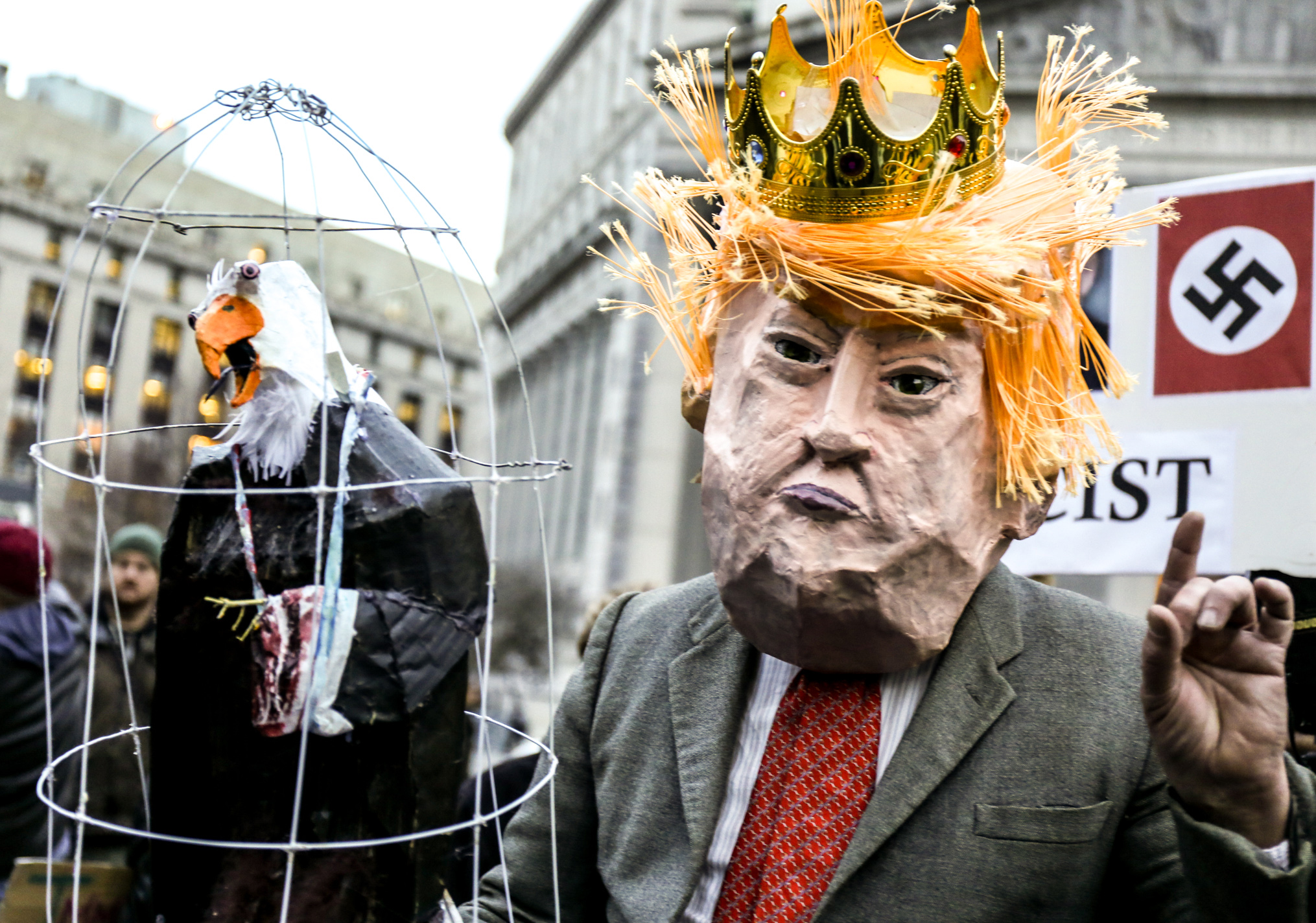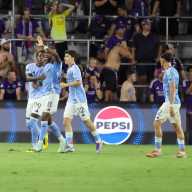
Protesters gathered Downtown for the second time this week to blast President Trump’s executive orders barring refugees and visitors from seven Muslim-majority countries.
BY ZACH WILLIAMS
Thousands of protesters converged on Downtown for the second time this week to blast President Trump’s executive orders barring refugees and visitors from seven Muslim-majority countries.
Protesters rallied at Foley Square before marching to a nearby federal Immigration and Customs Enforcement field office at 26 Federal Plaza in the hope of convincing staff there to resist the president’s orders for the good of the nation, according to protesters.
“The stability of the country is really being shaken by this man and his foolishness,” said Beth Pacheco, who came to the rally from Brooklyn.
Protests erupted across the city last week after Trump signed the controversial orders, which he said will prevent future terrorist attacks by barring visitors from Iraq, Syria, Iran, Libya, Somalia, Sudan, and Yemen for 90 days, and shutting out Syrian refugees indefinitely. But the list of seven predominantly-Muslim countries does not include Saudi Arabia, Egypt, the United Arab Emirates — home countries of 9/11 hijackers — where Trump reportedly has business interests.
Wielding signs with slogans such as “Fight ignorance not immigration,” “No ban, no wall,” “Immigrants make America great” and “This all really sucks,” demonstrators along Broadway urged motorists to honk their horns in solidarity. Cheers erupted when they did, and defiant chants answered the occasional drivers who shouted pro-Trump slogans as they drove past. Tourists peeked out from tinted tour bus windows as protesters leaned against the police barricades that separated the crowd from the agency tasked with enforcing Trump’s draconian orders.
Lower East Side native Danny Ahmed said he took to the streets in part because of what he saw as a rise in anti-Muslim sentiment. For example, he recently saw a white man slam a hijab-wearing woman in the shoulder as he as walking into the Union Square subway station and she was coming out. It clearly hurt her, and it struck a nerve with Ahmed.
“Why would someone do that?” he said. “Just because we’re Muslims doesn’t make us less of human beings.”
That incident was a minor part of the major issue that drove Ahmed to join the protests this week, starting with a Monday rally at Tompkins Square Park.
Blocking refugees and banning on people from predominantly Muslim countries run counter to American values, Ahmed said, but Trump’s divisive orders are also, ironically, bringing many New Yorkers together with the groups the president is trying to exclude.
“It’s really bringing the country together, but in a ways it’s also really hurting us,” Ahmed said.
Protesters at Foley Square said marching in the streets is just one of several ways they are opposing Trump, including outreach to elected leaders, community meetings, social media organizing, and even a bit of child’s play.
The onslaught of the Trump agenda has catalyzed cooperation among local faith communities, such as an interfaith playdate held last month at Masjid Madina, a mosque on East 10th St. A similar playdate is scheduled for March 19 at Middle Collegiate Church, and a meeting for the adults at Masjid Madina on March 7 will focus on immigration issues, according to organizer Anthony Donovan.
Despite fervent opposition in New York City, polls this week suggest that Trump’s actions on refugees and immigration are supported by a plurality of Americans. About half of those polled by Reuters/Ipsos on Jan. 31 said they supported the policy. About one third responded said the executive orders made them feel “more safe,” versus about one quarter who said the opposite.
Ahmed said that some Muslims in his neighborhood have been told to “go back to your country,” but a group of neighbors also expressed their support for the Muslim community through a letter to his friend. Actions like that inspired Ahmed to concentrate the positive developments in a dark time for American Muslims like himself.
“It brings out the best in people and it brings out the worst in people as well,” he said.





























